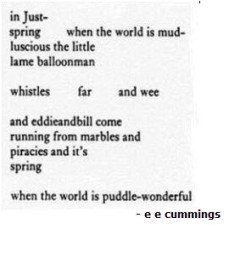It’s been six or seven years since I saw Patrick Stewart and Ian McKellen in Beckett’s play, Waiting for Godot in London. I don’t quite remember now what I thought of the play at the time (though I did like it). As I skim and review its lines for this post, it occurs to me that much of the double-entendre may have been missed in the viewing, now caught in the reading. For sure, there is one thing that I did not seize upon when I saw the play–the singular concept of waiting. Recent events have me thinking about how much of the present is lost to waiting for some event yet to occur. And, with that thought, I returned to the play script to see if there was a message there missed by me during my first exposure to it.
In the last 24 hours, during conversations with a handful of people fairly close to me, the following were being awaited: word from a college admissions office, commitment from a venture capitalist, a reply a text after a first date, bar exam results, a grant award, a layoff notice and the arrival of a newborn. But what really struck me was how the present was being forfeited to the wait. In the words of Estragon, recoiling before Pozzo, “That’s to say . . . you understand . . . the dusk . . . the strain . . . waiting . . .” Every person, without exception, was straining under the pressure of the wait.
Where there was once capacity in “slower moving times” to enjoy the present, knowing the future would unfold in the eventuality, the present seems to have been lost to anticipation, forfeited to the wait. My grandmother used to say: “Everything comes to those who wait.” We were conditioned to think of waiting as something possibly to be valued. But now, like Estragon and Vladimir, people are waiting–day after day, with blind obedience to some messenger from the future, that commands, it will come and they should agonizingly wait for it.
Please don’t think that this perspective comes from some Polly Anna of a writer who herself has nothing looming in the future. Indeed my future holds a ball that will drop, which while not my own, is nevertheless heavy and sad and will affect me deeply. But living in the present, for me means not waiting agonizingly for Godot to come by the tree near where I reside–but to go out and about, living life. Perhaps I will bump into my Godot as I bumble along –and by bumble I mean take it by the tail and whirl it as hard and fast as I can. As for waiting for this or that, I will deal with whatever it is…no sooner than I have to, no later than I am required to.
And, yes there I go ending another sentence with a preposition.

 a point where commentary is more and more measured– mindful of how one’s words might be construed in an entirely unrelated context, years from when they were originally uttered. At work is a sort of personal iteration of the “observation effect” alluded to by quantum scientists–considering what one wants to say (the particle), observing the two slits ahead (what you mean and what someone else might construe you to mean) and the “interference”–your inner voice modifying the words and modifying the thought process that generated them–resulting in the original thought differently (and more safely) expressed.
a point where commentary is more and more measured– mindful of how one’s words might be construed in an entirely unrelated context, years from when they were originally uttered. At work is a sort of personal iteration of the “observation effect” alluded to by quantum scientists–considering what one wants to say (the particle), observing the two slits ahead (what you mean and what someone else might construe you to mean) and the “interference”–your inner voice modifying the words and modifying the thought process that generated them–resulting in the original thought differently (and more safely) expressed.